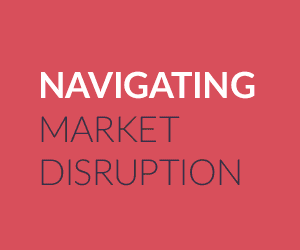Exizent: Judges’ insights series: Challenges to perceptions of tech in today’s law firms
British Wills and Probate Awards: Judge David Baskerville challenges the perceptions of tech in today’s law firms
As Network Sponsors and Sponsors of the Customer Service Champions at this year’s British Wills and Probate Awards 2022, Exizent wanted to kickstart the celebrations by bringing back their Judges’ insights series — weekly interviews with the judges themselves to get their views on the future of the industry and what firms need to do to excel.
This week Exizent were joined by David Baskerville, Director & Lead Consultant, Baskerville Drummond LLP, discussing the challenges he faces in encouraging technology adoption across legal services, how firms can extract value from what they already have and what he calls ‘the apple-isation of technology’.
- What is Baskerville Drummond LLP, and in what ways are you supporting the Wills & Probate sector?
Baskerville Drummond are a niche IT consultancy who formed just over 10 years ago. We are all ex-IT or Finance Directors from within law firms. We operate solely in the legal space, and help law firms understand their challenges with technology and define their strategy, assist in identifying and procuring the solutions they require one to achieve their strategic aims, help them implement that system and finally become a long-term trusted advisor for the board on all issues relating to IT and system adoption.
- What drove you to found one of the UK’s leading IT and business consultancies for law firms and what has been the key to your success?
It all started with the Credit Crunch. I was working for Tollers Solicitors in Northampton when the Credit Crunch hit and Tollers reduced their staff from 300 people to about 120. I had an offer of equity on the table, but I’d always wanted to work for myself and the structure they were putting in place wasn’t for me, so I took the brave step of setting up on my own.
When I started off, I assumed I would be taking on 6-month contract positions. But while this is great for the first couple of years, it’s hard to sustain by getting continuous work so over the 10-years, I’ve developed into a true consultancy.
Now each of our consultants always work for 4-5 firms which gives us a lot of exposure to what’s happening in the market. What’s driving us is the enjoyment we get from working with clients who really want to make a difference. We are very focused on firms where we can go in and really make a difference as an external advisor.
Chambers have recently begun a review of technology companies and consultants and have categorised us as band 1 – the highest ranking. Chambers commented that “They know their products and what their clients want” – which essentially means we look after our clients and know what they need and what we need to do for them. That’s what’s made us successful.
- Working in wills and probate can be challenging both technically and emotionally, what about this area do you find most rewarding?
It’s both a frustration and a reward because there is still the assumption that clients aren’t interested in doing things better or quicker. I use my Dad as an example to challenge this. He is a retired headmaster who retired from work at the age of 60 having never touched a computer. But, he’s now in his 80’s and is on his computer every day. He gets frustrated when has to phone people because he wants to use a portal to do things and has complained when his lawyer has asked him to sign documents in person. So, when talking to clients who presume people don’t want that – I say, ‘here’s a guy who was completely anti-IT saying, why can’t my solicitor’s send me something that I can sign on the computer?’
Lawyers often use the age of their clients as an excuse to not challenge the way they do things. So, working in the sector is an excitement because you can see what can change and the benefits it will have. But it’s a frustration because of the inbuilt negativity of some lawyers.
What is frightening, is that I recently spoke to a newly qualified lawyer in her mid to late 20s who’s point of view now is that technology has no place in helping her with her job, yet she used technology to get through university. Already, the culture of her team has taught her to adopt that attitude and I see this time and time again which, in today’s world, is concerning.
- What are the biggest challenges you face in the sector today?
First, it is the attitude of lawyers around the use of technology and that it doesn’t have a place in helping them. Then, it’s scepticism. Technology was overpromised in the dot com boom, and there’s still a lot of salespeople who overpromise and underdeliver so there is a lot of scepticism around technology and its true benefits. Finally, laziness – people expect IT to work out of the box like an iPhone but we’re not in that world. The use of technology requires training, and lawyers must be willing to take part in that training.
- As a provider of strategic advice around system selection within law firms, what technical systems or features do you think are important in the wills & probate sector for firms to be successful?
The absolute basic, and the absolute truth, is that in Wills and Probate it’s been a race to the bottom. To do their work properly and professionally, lawyers must rely on basic things like case management systems and precedent banks.
Firms that feel they’re too high value for these things need to be reminded that most wills are, at very least, 50% the same. So, if your systems and precedents are built for that 50%, then you only need to build the value-adds on top. Deal with the commodity then put your time and effort into adding the cherry on top of that cake. People are still building the cake from scratch every single time.
The number of firms who don’t have basic will clauses, basic precedent banks, basic workflows for how they’re going to get the most efficient work is prevalent, but they can’t sustain this at their price forever.
- What is the greatest industry change/shift you’ve observed in your career to date?
I would say the flexibility of work that’s been facilitated by the cloud. When I first started people had to go into the office because they couldn’t get their IT any other way. There wasn’t the ability to work from home, from tablets etc. Whereas now we have mobility and choice of location.
- What barriers need to be overcome to encourage greater integration of technology by practitioners in the industry?
There’s a lot of partners who still say they’re too old for technology and for those firms where this is the case, there needs to be a challenge over its leadership. Partners must turn to the younger generations i.e. those who have grown up with technology and have the experience of what it can do, and listen to these people about their experience with it and the benefits, and stop enforcing traditional ideas on them otherwise there will never be the systematic changes that we see helping every other industry thrive.
We also need training. Every firm I work with says their number one gripe is that they never get trained on IT but when you actually implement technology, can you get people to give up even half an hour to do training because of the billable hours? There’s a real conflict between what things people complain about and their own behaviours to get the training they need.
- What is the most important area to focus investment on across the industry right now?
I would say the creation and management of documents. I have a vast number of clients who have huge banks of paper-based wills that they’ve never captured information from. They’re sitting on a gold mine of client information which they don’t ever use because they’ve written a will, lost the review date and because of this, it’s sat stagnant. Why? Because for many lawyers, it’s about the piece of work they’re doing now and never about extracting further value from what they already have.
I would look at wherever you can extract future value from your current work.
- What trend, beyond tech-adoption, are you most excited to see in future?
For me, tech adoption still isn’t there, so I struggle to see beyond that. But, I would probably say the apple-isation of technology would be what I’m most excited to see. When a supplier can make a business application that’s as easy to use as an iPhone, they’ll see success. The problem is that the business application is so complicated that it’s going to be extremely challenging to get there.
- What is the value of mentorship, collaboration and knowledge sharing within the industry?
It’s huge. For lawyers, there’s a lot of competitiveness between them but you don’t get better if you do things in a silo. Most of the sectors driving quality improvements and technical enhancements do so by working together. In the IT community there’s several groups where firms would want to do their application work together.
That shared knowledge and understanding of a problem, where firms using the same software can say ‘we’re all having these problems’ creates that user voice that will have a huge impact on the software and what it does for them. As a lone voice you can’t do that. It’s a very simple example but working together to share knowledge drives standards and innovation because suppliers have to listen to mass audiences.
Subscribe to get all of our Judge’s Insights direct to your inbox.



